LGBTQ
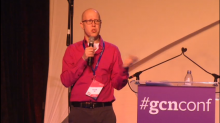
Less than 10 weeks after Houston voters — many persuaded by local Christian pastors — repealed a city ordinance that would have protected Houstonians from discrimination on the basis of sex, sexual orientation, and gender identity (as well as race, religion, and other traits), 1,450 people gathered in the city for the Gay Christian Network conference, the world’s largest annual event for LGBT Christians and their allies.
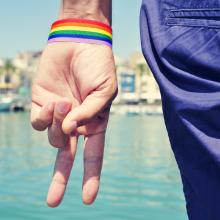
An influx of requests from Christian universities for the right to discriminate on the basis of gender identity have flooded the Department of Education. As many as sixty Christian schools have submitted requests for Title IX waivers since 2014, when the Department of Education announced their protections were inclusive of transgender students. Before this clarification, only a handful of universities had asked for such waivers in the 40-plus years since Title IX was established in 1972. But the decision to extend protections to transgender students has prompted dozens of Christian schools request these waivers.

When I was eighteen years old I knew that I knew everything there was to know, especially in regards to the “us” and the “them” of the world. Eighteen-year-old me knew that being gay was a sin and that LGBTQ people were not called to leadership in the church (and my conservative Christian college did nothing but reinforce these beliefs). But four short years later I found myself on a hill across from my alma mater, standing in solidarity with dozens of LGBTQ young adults and allies, advocating for change in Christian universities with policies that discriminated against LGBTQ people.
How did I get from “there” to “here”? How did my view of “us” and “them” shift so radically?
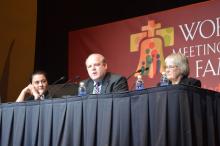
Just as the single session on homosexuality at this Vatican-approved meeting of Catholic families was to begin on Sept. 24, a conference official took the stage in the main hall, capable of seating at least 10,000, and announced the location had been moved.
Thousands of people got up and made their way up one floor to another room capable of seating only about 1,000. Hundreds of others were turned away, the doors shut on them by convention center officials citing fire code regulations.

As Mariame Kaba of Project Nia notes, police violence is not simply just the killing of peoples. It includes the every day forms of harassment, surveillance, and profiling that support both gender and race hierarchies.
The campaign to #sayhername is not simply about remembering and organizing around black women and other women of color who have been killed by the police. It is about re-conceptualizing what police violence means. When we center women of color in our analysis, we see that police violence is much more than individual acts of police brutality. It is an entire system of harassment and surveillance that keeps oppressive gender and racial hierarchies in place.
We are then left with the task of not just holding individual police officers to account, but re-conceptualizing what justice, safety, and accountability should be.
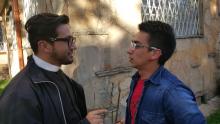
Not long ago, the thought of a transgender person speaking openly to a Roman Catholic priest in Colombia would have seemed unthinkable. Now cultural shifts are making way for LGBT acceptance, at least in some urban areas.
“We are liberal,” said Marcela Sánchez, director of Colombia Diversa, the nation’s most prominent LGBT rights organization. “Please don’t say Colombia isn’t liberal!”
Recent polls estimate that two-thirds of Colombians oppose same-sex marriage, but that is less opposition than in many Latin American countries, including neighboring Ecuador. Support for same-sex marriage is highest in Bogotá, the nation’s capital, where, in a 2010 poll conducted by local newspaper El Tiempo, 63 percent of residents endorsed the right of same-sex couples to marry in civil ceremonies.
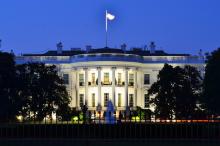
The White House has hired its first openly transgender staff member, the Washington Post reports.
The staffer, Raffi Freedman-Gurspan, will work as a recruitment director for presidential personnel. She is not the first transgender staff person to be hired by other agencies under this administration, but is the first to work in the White House. She is also a transgender woman of color, which LGBT groups noted as significant a news release.

As an undergraduate student at a Christian university, I realize that my degree of experience within American social trends is limited to the last two decades. However, my age does not disqualify my faith as a Christian, nor should my faith as a Christian disqualify my faculty of reasoning.
I cannot speak as one who knows the mind of God, but as a Christian I have been called to have the mind of Christ. And through careful inspection of the texts left for us, it is possible to discern what a Christ-like mind is — what a Christian mind is supposed to be.
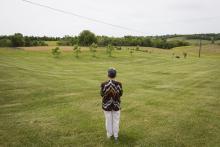
Sister Monica lives alone in a small house at the edge of a Roman Catholic college run by a community of nuns.
She doesn’t want to reveal the name of the town where she lives, the name of her Catholic order, or her real name.
Sister Monica lives in hiding, so that others may live in plain sight.
Now in her early 70s and semiretired because of health problems, she remains committed to her singular calling for the past 16 years: ministering to transgender people and helping them come out of the shadows.

Canfield and Kelly have decided to keep singing each Sunday at Hillsong, despite the restrictions. They recognize that the decision they’ve made is not one that every person in their position should make. But they believe it is the right one for them.
“If every gay person leaves their church because they have been treated poorly, nothing will change,” Canfield said.
“They still want us, and we feel called to stay. And we’re telling all our gay friends at Hillsong to do the same.”
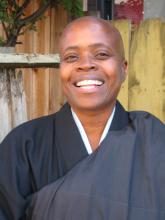
When Zenju Earthlyn Manuel goes to teach somewhere for the first time, she often sees surprise in the faces of the students as she is introduced.
She doesn’t look like many of them expect. She isn’t Asian. She isn’t a man. And she isn’t white.
And getting them to acknowledge that her body — her “manifestation,” as she calls it — is different and a part of her experience is crucial to her teaching. If our bodies are sources of suffering, then we ignore them at our peril.
“When I have held and embraced who I am, how I am embodied, it has become a source of enlightenment, of freedom,” she said from a sunny corner window seat in her living room. Draped in a black monk’s jacket, she is a stark contrast to the white walls and white upholstery of the rest of the room.
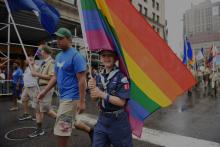
The Boy Scouts of America ended its national ban on openly gay adult leaders and employees on July 27 while allowing local religious units to continue to exclude gay adults.
Meeting by conference call, 79 percent of the BSA’s national executive board members favored the resolution ratified earlier this month by its executive committee.
The policy change represents the end of a long and bitter struggle over whether to accept gay members that began more than two years ago when it allowed gay youths to participate, but not adults.
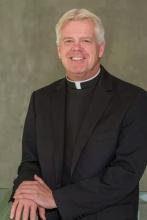
In May, the Rev. Warren Hall was abruptly dismissed from his position as the popular campus chaplain at Seton Hall University in New Jersey because the Catholic archbishop of Newark said his advocacy against anti-gay bullying, and his identity as a gay man, undermined church teaching.
Now Hall has written to Pope Francis asking that when the pontiff visits the U.S. in September, he speak out against such actions because they are “alienating” gay Catholics and the many others who support them.
In the letter, which was dated July 14, Hall asked Francis to “find time to listen to the challenges faced by LGBT people, especially those who are Catholic and wish to remain a part of the Church they have grown up in, which they love, and yet which it seems is alienating them more and more.”
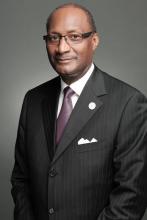
Since the Supreme Court ruled that same-sex marriage is constitutional, the Rev. Jerry Young has been in a quandary.
As the president of the National Baptist Convention, USA, a predominantly black denomination, he is grappling with a new reality: how to respond to the specter of discrimination against gays. While he doesn’t support gay marriage, the refusal of some religious bakers and florists to provide services to gays prompts memories of racially segregated hotels and restaurants.
“On the one hand, you have to be sensitive to the fact that you do not want people to be victims of discrimination — that’s just an absolute fact — you just do not want that to happen,” said Young, who grew up in Mississippi in the civil rights era and is developing a position paper to guide NBCUSA congregations on these issues.
“And on the other hand, there is this tension between what, as Christians, we believe God has called us to do, and what it appears to be, in some sense, what the culture seems to be doing.”
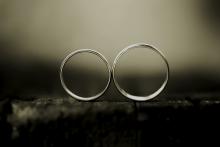
A few weeks ago, the single person’s lament was eloquently stated in The New York Times opinion pages, with a piece called "The Supreme Court’s Lonely Hearts’ Club" by Michael Cobb. Cobb articulated some of the pause that many of us singles have felt as the conversation has gone on about marriage, in particular how Justice Kennedy captured the spirit of the age by extolling the matrimony as the highest institution in the land.
I don’t disagree about the importance of marriage, but I have a lot of concern about how it has been talked about and in many ways idolized in this country. Much of the church has led the way on this idolatry — on the policy end, claiming the need to defend marriage; on the spiritual side, treating marriage as a pseudo-salvation, as though being married means that in some way you’ve "arrived" spiritually.
A few weeks ago, the single person’s lament was eloquently stated in The New York Times opinion pages, with a piece called "The Supreme Court’s Lonely Hearts’ Club" by Michael Cobb. Cobb articulated some of the pause that many of us singles have felt as the conversation has gone on about marriage, in particular how Justice Kennedy captured the spirit of the age by extolling the matrimony as the highest institution in the land.
I don’t disagree about the importance of marriage, but I have a lot of concern about how it has been talked about and in many ways idolized in this country. Much of the church has led the way on this idolatry — on the policy end, claiming the need to defend marriage; on the spiritual side, treating marriage as a pseudo-salvation, as though being married means that in some way you’ve "arrived" spiritually.
A few weeks ago, the single person’s lament was eloquently stated in The New York Times opinion pages, with a piece called "The Supreme Court’s Lonely Hearts’ Club" by Michael Cobb. Cobb articulated some of the pause that many of us singles have felt as the conversation has gone on about marriage, in particular how Justice Kennedy captured the spirit of the age by extolling the matrimony as the highest institution in the land.
I don’t disagree about the importance of marriage, but I have a lot of concern about how it has been talked about and in many ways idolized in this country. Much of the church has led the way on this idolatry — on the policy end, claiming the need to defend marriage; on the spiritual side, treating marriage as a pseudo-salvation, as though being married means that in some way you’ve "arrived" spiritually.

I have to force myself to go to church.
Saturday mornings, when Seventh-day Adventists like me observe Sabbath, I lie in bed extra-long. Sometimes, I roll over and shut my eyes. Other times, I have to physically force myself to get up and prepare, both mentally and physically, to go.
It didn’t use to be this way. I remember waking up extra early as a preteen when I was excited to go to church. More than likely, I would be singing at both services, either in a choir or in special music. I would stay long hours after the service for evening vespers.
That all changed when I came out as bisexual. I no longer felt welcome at worship.
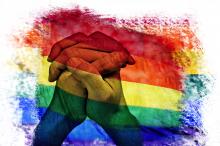
The year is 2005. We are sitting down to dinner with our friend, Michael, in his apartment. Michael is gay and he’s wrestling with what that means. He is also searching for a church and he is drawn to oursbecause his theology and his understanding of God appear to align well with it. At some point in the meal he stops the conversation and asks bluntly,
"Do you think I would be welcome at your church? Is there is a place for someone like me?"
Jason and I exchange a look and the table falls silent. Finally I look up at Michael and say quietly,
“No. No, I don’t think there is. I’m so sorry.”
Fast forward several years. We’re in a new city and a new church. Jason gets an email from someone interested in checking out said church the following Sunday. She explains that she is gay and believes God made her that way. She’s not interested in debating the point. She’s just interested in finding a church. She thinks ours might be a good fit and asks the exact same question that Michael asked:
"Do you think I would be welcome at your church? Is there is a place for someone like me?"
Jason agonized over that email for days and it pained him immensely to write her back and say no. No, I don’t think there is. I’m so sorry.
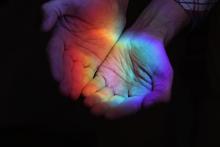
“I believe Jesus would. I don’t have any verse in scripture. … I believe Jesus would approve gay marriage, but that’s just my own personal belief. I think Jesus would encourage any love affair if it was honest and sincere and was not damaging to anyone else, and I don’t see that gay marriage damages anyone else…” —Jimmy Carter, from his interview with Huffington Post Live
I grew up in Texas as a churchgoing Baptist. I memorized Bible verses as part of my “sword drills,” went to church camp, took part in the clown ministry and even helped in the nursery.
Then I was kicked out at age seventeen for asking too many questions. My youth minister actually threw a Bible at my head and, in a less than nuanced way, invited me to move on, lest I contaminate the minds and hearts of my friends with my doubt.
Some of my questions had to do with their biblical interpretation, which was literal — and their assertion that the texts we were memorizing were the perfect, infallible Word of God, straight from the mind of the Divine to the paper on which it was written.
I had questions.

Despite threats from some conservative Christian dissenters, civil disobedience may turn out to be an irrelevant response to gay marriage.
To understand why, we have to think seriously about what civil disobedience really is.
Here’s a good definition: If a government mandates what religious people believe God forbids, or forbids what religious people believe God mandates, civil disobedience may be required.
In the first case civil disobedience involves the refusal to do what government commands, and in the second case it involves the continued practice of an act that government has banned.
Could this apply to the new legalization of gay marriage nationwide?
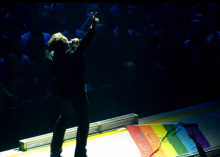
On Sunday, June 28, the day of gay pride parades in Chicago and around the world, millions celebrated the recent United States’ Supreme Court decision that effectively legalized gay marriage at the national level. But David Wichman took his personal Pride rally to the General Admission (GA) line at the United Center.
With his hand-decorated rainbow flag in tow, he wanted to get a place close to the stage. His flag simply said: “IN THE NAME OF LOVE – THANK YOU!” Wichman wanted Bono and the band to know their work as allies had not gone unnoticed.
Dozens of fans bring their banners and signs to the GA floor on each night of the tour — but not every fan has their banner or sign lifted high by the lead singer onstage. As Bono had done in Arizona in May after the news of Ireland’s successful marriage referendum, he turned this spirited Sunday night show into a celebration of marriage (his wife Ali was in attendance), and a joyful tribute to the civil rights advocates who worked to make marriage equality a reality for the whole United States.